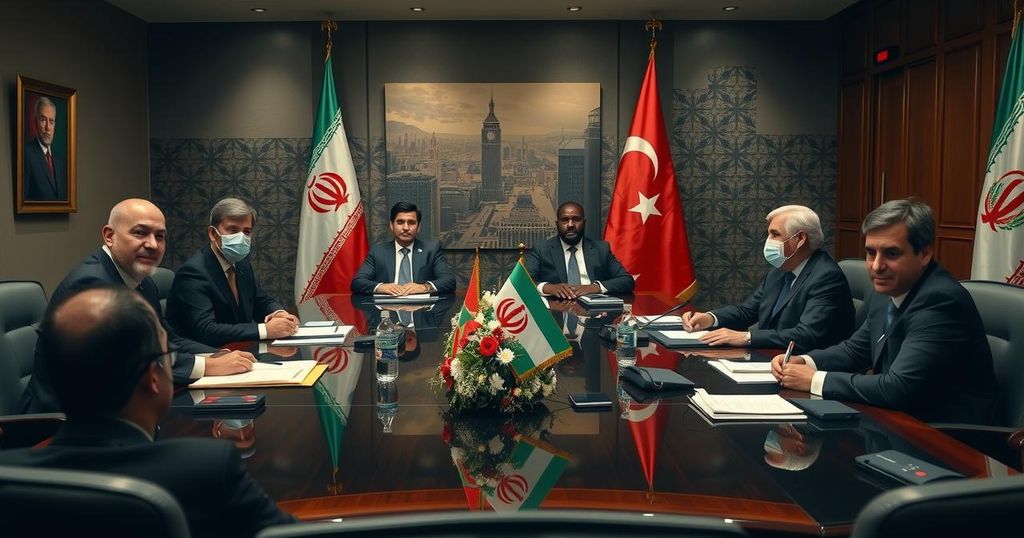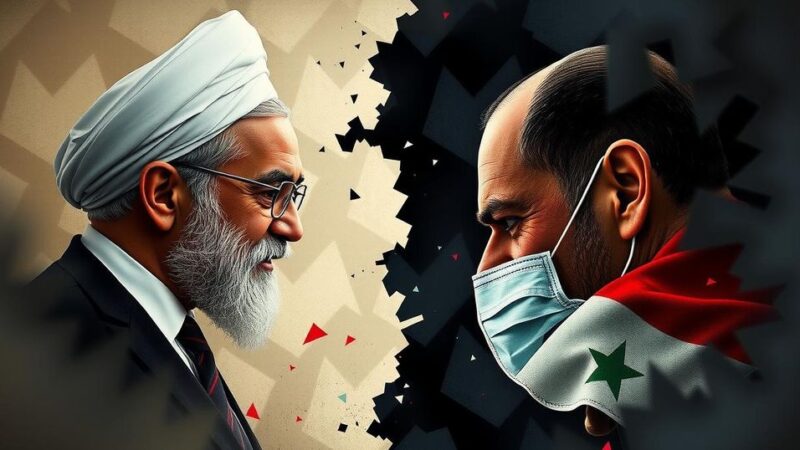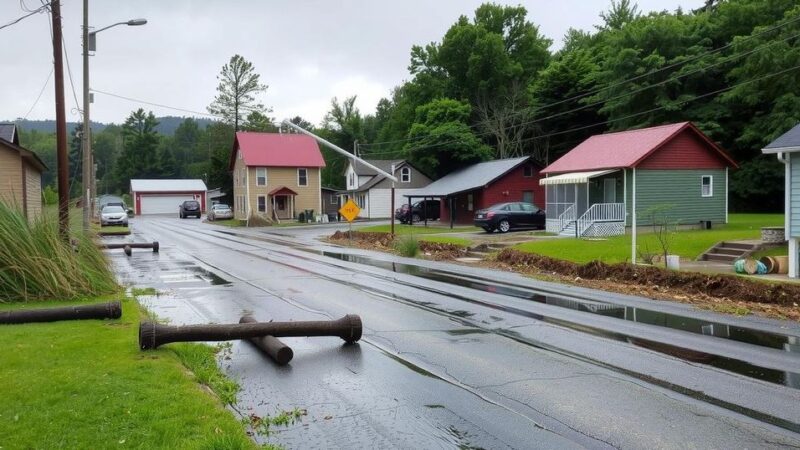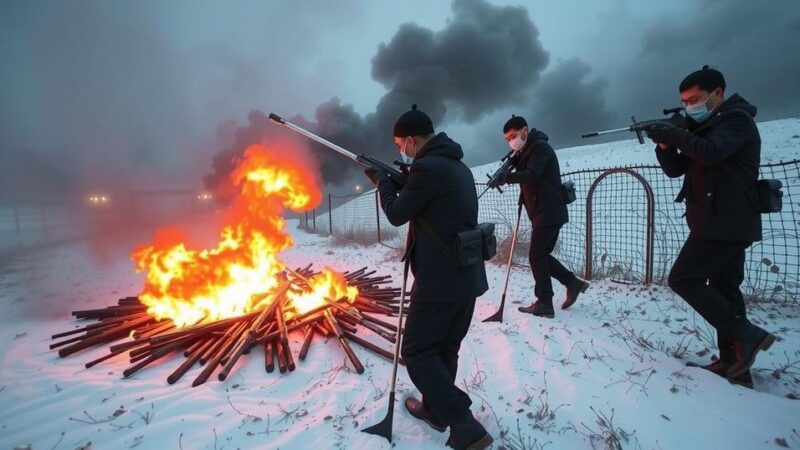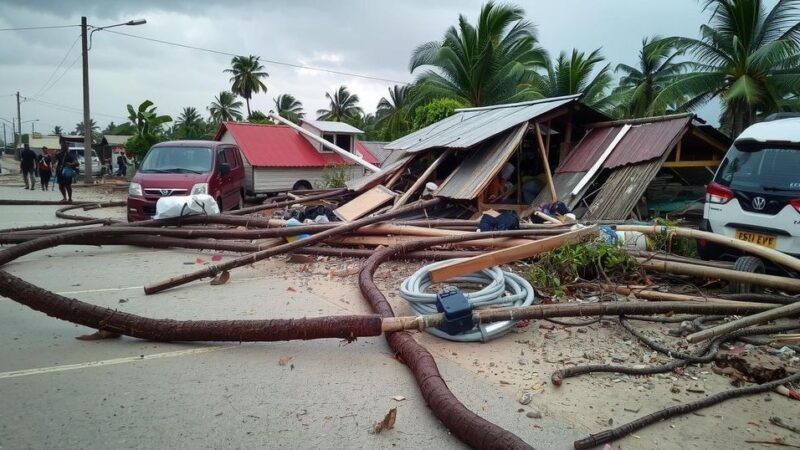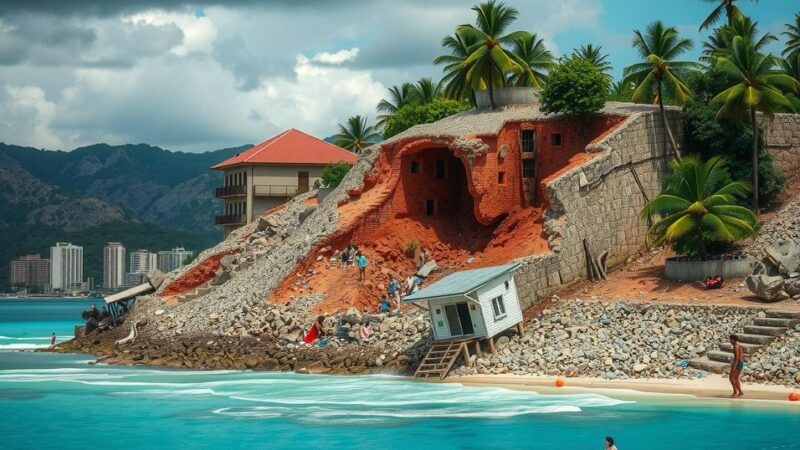An Iranian delegation, led by parliamentarian Ibrahim Azizi, began a week-long visit to Algeria and Tunisia to foster cooperation and strengthen Iran’s influence in North Africa. This visit comes after decades of strained relations, aiming to advance dialogue on bilateral ties, regional issues, and economic collaboration.
A delegation of Iranian officials is undertaking a significant week-long diplomatic mission to Algeria and Tunisia, aimed at enhancing cooperation and increasing Iran’s influence in North Africa. Headed by Ibrahim Azizi, the Chair of the Iranian Parliament’s National Security and Foreign Policy Committee, the group arrived in Algeria on Wednesday before their scheduled visit to Tunisia on Thursday. The mission includes key committee members and Mohammad Reza Babai, the Iranian ambassador to Algeria.
Historically, diplomatic ties between Algeria and Iran have experienced considerable strain, particularly during the 1990s when Algeria accused Iran of supporting insurgents amidst the devastating civil war, known as “the Black Decade,” which tragically claimed approximately 200,000 lives. Although relations were restored in the early 2000s, they remained relatively cool until recently, when a flurry of high-level visits signaled a thaw. Notably, a visit by former Iranian Foreign Minister Hossein Amirabdollahian to Algeria last July marked the beginning of improved engagement, culminating in an exchange of visits over the past year.
The Iranian delegation held discussions with key Algerian officials, including Foreign Minister Ahmed Attaf, focusing on the “realities and prospects of the fraternal and cooperative relations” between the two nations. Their dialogue emphasized enhancing bilateral ties on various fronts, particularly in addressing regional concerns relating to the Palestinian issue and broader Islamic world challenges. Algerian officials also expressed interest in strengthening economic and commercial collaborations across sectors such as agriculture, tourism, and education.
The anticipated visit to Tunisia represents a notable shift in Tunisia’s foreign policy, indicating a move away from traditional Western alliances. This re-alignment was previously highlighted by President Kais Saied’s historic visit to Iran in May to pay respects at the funeral of the late Iranian president, Ebrahim Raisi. This visit notably marked the first occasion a Tunisian leader visited Iran in nearly six decades. Additionally, the recent relaxation of visa restrictions for Iranian travelers to Tunisia reflects a deepening of bilateral relations.
In conclusion, the Iranian delegation’s visit to Algeria and Tunisia underscores Tehran’s proactive strategy to fortify its diplomatic presence in North Africa. Enhanced dialogue between these nations points towards a potential strengthening of ties in the face of shared regional and global challenges, as both countries seek to leverage cooperation for mutual benefit in light of changing geopolitical dynamics.
The Iranian delegation’s visit to Algeria and Tunisia occurs against a complex historical backdrop where relations between these nations were characterized by caution and suspicion, particularly during the violent period of Algeria’s civil war in the 1990s. Prior to this recent push for closer ties, interactions had been limited and cautious, though there were signs of thawing since the early 2000s. Recent high-level exchanges signal a renewed commitment to explore collaboration on regional issues, addressing common concerns such as security threats, the plight of Palestinians, and economic cooperation. The shifting dynamics in Tunisia, marked by growing ties with Iran, illustrates a broader geographical realignment away from Western influence, particularly in light of diplomatic visits and policy changes to facilitate travel and tourism.
In summary, the diplomatic visit of the Iranian delegation to Algeria and Tunisia marks a significant step towards enhancing bilateral relations between Tehran and North African states. The discussions held during this visit not only address historical tensions but also focus on current opportunities for collaboration in various domains, particularly concerning economic cooperation and regional stability. This engagement signifies a strategic pivot for both Iran and Tunisia, emphasizing a mutual interest in navigating the complexities of contemporary geopolitical landscapes together.
Original Source: www.thenationalnews.com

